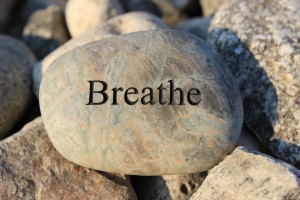WHAT IS A CEU?
December 18th, 2014
A CE is a unit of credit equal to ten hours of participation in an accredited program designed for professionals with certificates or licenses to practice various professions. Continuing education units, or CEUs, are awarded by many education and training providers to signify successful completion of non-credit programs and courses intended to improve knowledge and skills of professionals. Many professions require an annual allotment of CEUs to maintain certification. Common professions that require CEUs are teachers, doctors, nurses, real estate agents and therapists. The annual number of CEUs required varies by state and profession.
How long does it take to earn your continuing education units?
The typical CEU represents approximately ten (10) contact hours of experience in a structured continuing education experience (class, seminar, retreat, practicum, self-study, etc.) that is supervised in some way by a qualified continuing education provider.
What professions need continuing education units?
CEUs are most often used in professions that require licensing, in order to maintain that licensure. Often it is the governing licensing boards or professional societies, but it can also be employers. Some examples of professions that require continuing education include:
• Social workers
• Psychologists
• Nursing
• Insurance
• Counselor/Addiction Specialist
• MFT/LCSW
How much do continuing education units costs?
The cost of CEUs varies widely; some organizations charge per learning program, some charge per course and some charge per credit. At CEUnits.com, the vast majority of courses are offered at $5 per credit. Courses range from 1 credit to 20 credits.
The online CE courses offered by ceunits.com qualify for NASW, CA BBS, ASWB, NBCC, NAADAC, CAADAC and The California Department of Insurance. CEUnits is approved by the American Psychological Association to sponsor continuing education for psychologists. CEUnits maintains responsibility for this program and its content.
The Therapy Relationship and Outcomes: What Do We Know?
December 16th, 2014
Despite what Big Pharma and Big Medical would have us believe, decades of careful scientific research have documented the effectiveness of psychotherapy. It’s been studied more than nearly any pill, surgical procedure, or medical device. As an old colleague once said, “We’ve studied the snot out of psychotherapy”.
When research evaluates the factors that contribute to psychotherapy success the emerging answer is that, like all complex human endeavors, many factors account for success (and failure): the client, the treatment method, the psychotherapist, the context, and the relationship between the therapist and the client.
We hear often that research finds this last nugget to be impactful: the relationship between the therapist and the client. But few of us have the time to collect and review all the studies on the therapy relationship.
But we’re in luck. A new CEUnits course, Evidence-Based Therapy Relationships summarizes the impact of key elements of the therapy relationship on treatment outcomes. For each therapy relationship element, several therapeutic practices are described, in terms of both the therapist’s contribution and the client’s perspective. The course concludes with a chapter that reviews the research findings on adapting or tailoring the relationship to the individual patient in an effort to achieve that good fit, that optimal match between a unique client and the treatment.
We are very pleased to now offer this course to help support the continued honing of good practice, and help invigorate us with the confidence of knowing our work matters.
5 Quick Stress Management Tips for the Holidays
December 9th, 2014
By Lauren Dennelly, MSW, LCSW
Ahhh, the holidays. It’s the best time of the year, right? Well, ideally. The holidays can also be the most stressful and overwhelming time of the year. According to a 2008 holiday stress poll from the American Psychological Association, more than 8 out of 10 Americans expect the holiday season to be a stressful time.1 One third of people polled felt they would have too many obligations and would be expected to buy gifts, piling financial strain on top of emotional exhaustion. The holidays can also be a particularly stressful time for families with children who, according to the poll, anticipated more stress than families without children (ok we knew that one already)! If all this has you sweating over the holiday rush, here are a few tips to keep things merry and bright.
- Ask for help
It’s pretty much a given that you will be balancing holiday parties, family gatherings, and maybe even hosting duties of your own. Be realistic. If there is something that you can delegate to someone else, do it. You will be thankful later that you didn’t overwhelm yourself and were able to enjoy the holiday without becoming exhausted. - Learn how to say ‘no’
We all have of lots of competing responsibilities, especially when it comes to family. If you find yourself dreading going to an engagement, ask yourself what is really important to you and what will have the least stressful repercussions. If stressful engagements still can’t be avoided, develop a safety plan to reduce stress on the spot- go for walk, take a few deep breath for ten minutes in a quiet place, and/or set a definite time to leave a gathering. A little pre-planning can go a long way. - Reduce screen time
Screen time can sometimes be a helpful distraction, but it can also be activating stress-wise. Reducing the amount of time you spend on Facebook, watching the news, or playing with your phone can be stress-relieving (really!). Try and lessen over stimulation by putting the phone down and picking up a book, taking a hot shower or bath, or turning the TV off and listening to some music that you enjoy. - Do for yourself (Self-care 101)
Be in tune with yourself and know your ‘stress signals’. Make some time during your busy week to do something you enjoy and unwind. It’s just as important as buying that last minute gift. - Talk to someone
Let someone know how you are feeling. Chances are your friend or family member may be just as stressed out as you are and can offer some support. You’re not alone!
References:
1. www.apa.org/helpcenter/parents-holiday.aspx
Mindfulness and Human Services
December 2nd, 2014
-by Megan Ferguson, Contributing Writer
“Mindfulness” is translated as “awareness” or “bare attention”. It is often used as a way to refer to being attentive in sensitive, accepting and independent of any thoughts that may be present. Therefore, as a psychological process, mindfulness is the action of being intentionally present and attentive toward internal and external stimuli occurring in momentary experiences. Since mindfulness requires individuals to monitor the focus of attention, a method of instruction is provided to achieve mindfulness.
- First, practitioners place conscious, nonjudgmental attention on an object to focus such as breath, sight, sound or bodily sensations.
- Second, when the practitioner notices that attention has drifted, they bring the client’s attention back to the stimuli in focus. Therefore, since mindfulness is a very thought out process, training clients in mindfulness practice includes training them to practice a technique grounded in philosophy that is oriented toward developing unique skills for daily life.
Mindfulness Methods
Mindfulness-based methods are both professionally and personally beneficial to practitioners and are efficient in helping clients cope with both physical and mental health issues. Practitioners are usually able to
- (a) distinguish between psychological processes related to mindfulness and other mental processes critical to clinical practice,
- (b) have knowledge of the various types and methods of medication and mindfulness,
- (c) have knowledge of which types of mindfulness methods are effective, ineffective and potentially harmful for use in treating specific mental health issues,
- (d) and practice each specific mindfulness technique before using that technique with clients.
Therefore, it is imperative that practitioners use both their personal and professional knowledge to use mindfulness-based techniques to ensure the relevancy of specific mindfulness practice. Practitioners should also be able to distinguish between mindfulness-related and other states of mind; however, additional research is still required to better understand and explore the mental health effects of different mindfulness methods.
Mindfulness-based practice is particularly important when helping clients overcome traumatic reactions or events. Individuals who have experienced trauma are understandably motivated to avoid thoughts, feelings and memories of their traumatic experience.
‘Mindfulness-based practice is particularly important when helping clients overcome traumatic reactions or events ‘
However, compassion is viewed as an extremely beneficial manner to help an individual redevelop and grow from their experience. Traumatic experiences that may include interpersonal oppression or prejudice, which often results in individualized or interpersonal alienation, can help individuals redevelop relationships with people. Mindfulness and compassion can also help the trauma victim develop problem solving and adaptation approaches in response to their traumatic experience to help them develop new learning out of the experience. The therapeutic relationship also helps the client to come to terms with their trauma-related memories, relational schema and conditioned emotional responses. Mindfulness and compassion also work on the cognitive level in helping the client with new information and experiences of unconditional caring, acceptance, mindful awareness and attunement to help the client update his or her assumptions and behaviors. Mindfulness and compassion becomes very client focused so that practitioners are effective in the techniques that they use.
If you would like additional information regarding Mindfulness, CEUnits.com offers four courses in Mindfulness:
• Treatment of Depression in Older Adults: Evidence-Based Practice
• Mindfulness in Psychotherapy
• Working with Trauma – Mindfulness and Compassion
• Mindfulness Competencies for Counselors and Psychotherapists
(information and statistics in the article are drawn from this course).


